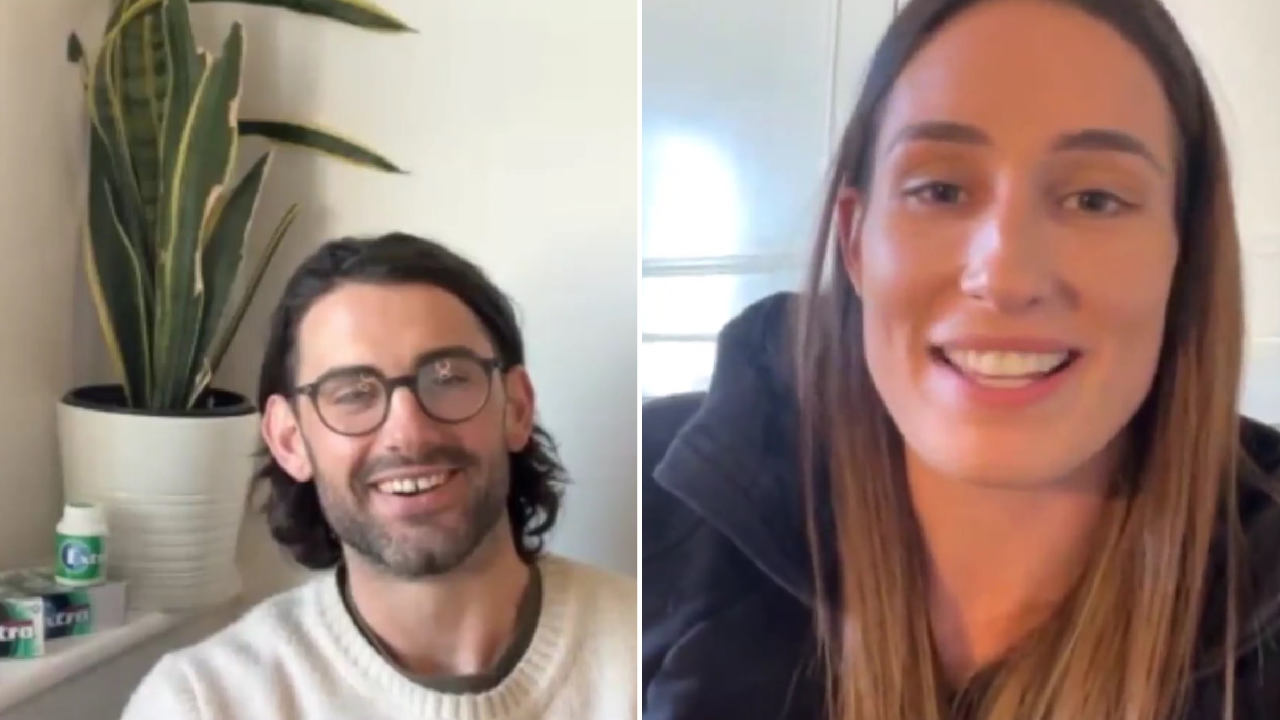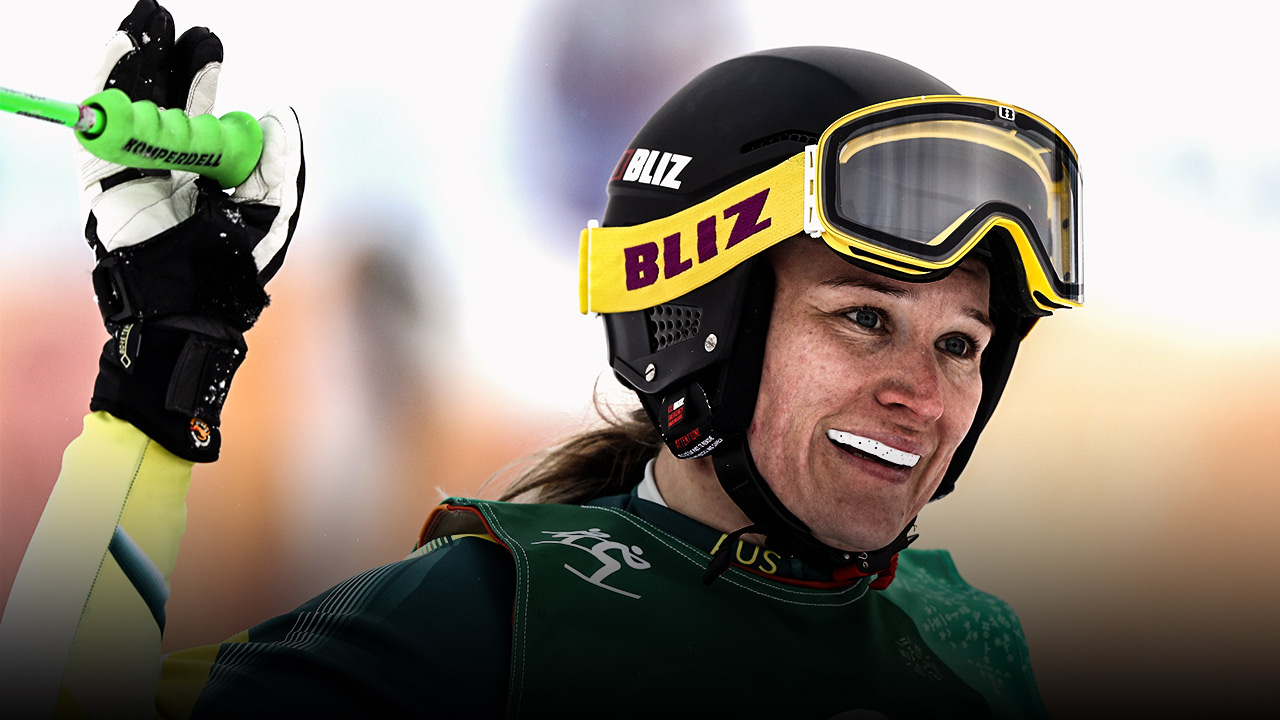Anything to Be Ready
Worlds was amazing. Winning games and bonding with my teammates was such a life moment to remember. In all my years of playing, I have never felt so welcome.
The Opals environment was such a special thing to be a part of, and so encouraging.
Having older women around was a huge help because I think they’re more understanding. I had great support from them.
We made it all the way to the gold medal game. After we beat Spain to make that playoff against the USA, I was chosen for drug testing and I didn’t get back to camp until late that night. I had a moment in the taxi on the way back from the stadium thinking, ‘You’ve done it Alex. Everything has been worth it’.

The next morning, I woke up and my knee was swollen. I went to the doc about 40 minutes before we left and had the fluid drained, with no numbing. She got rid of as much as she could.
I cried walking back to my room because all I wanted was to be able to be there for my team when they needed me. I would do anything to make sure I was ready.
Unfortunately, we lost but to stand up with that silver medal around my neck was emotional and inspiring. I couldn’t stop picturing a gold medal at the Olympics. And I knew that is where I was going. I knew that I would give it my all and make sure I gave myself a shot.
Op Number 11
When I came back to the WNBL with Sydney Flames, I was playing like I never had before, I was on such a high.
From game one I knew that Alex Bunton was back. I knew that I was going somewhere. I’d finally started playing without pain. My agent spoke to me about overseas teams wanting me and interest coming from here and there. I felt like I was finally making my mark.
I was happy and positive until our game against the Melbourne Boomers. I made a step-through move and my knee gave me a sharp pain and I had to come off at halftime.
They thought I’d pulled my quad tendon that attaches to the knee cap. I was so afraid I was hurt again that I said, ‘Okay, rub it out I’m going back on’.
Week by week, my knee wasn’t getting better and I couldn’t keep up. I had chipped cartilage and it was getting caught. The surface of my patella and loading joints were so damaged that it made my bursa fill up again and it felt like a never-ending cycle of swelling.
A year to the day since my last surgery, December 5th, I was booked into surgery again.
I couldn’t mentally process that, so I had it changed to a day later, the 6th. The coincidence felt too depressing.
My surgeon knew it wasn’t good to start with but tried to do everything to give me a shot at the Olympics. I woke up in recovery in tears, crying to the nurse that I knew it wasn’t good. I knew that I wasn’t okay.

I tried to rehab. I tried to get back. But my knee didn’t heal. It didn’t respond. Over time I tried to push myself, but it would always pull me back. I couldn’t do anything. No running. Walking hurt. Weights made it worse. Anything I did to try and get back just set me back.
I finally decided that I had to just let it heal. No weights, no cardio, just simple rehab exercises.
But my knee kept swelling. I had it drained three times. I tried everything. I had to pull out of the April Australian camp because I knew I wasn’t ready. I said that my goal was to be in the July camp and that would give me time to get fit and healthy again.
But then it was op number 11 and hopefully the last one I’ll ever need.
Gave Everything I Could
This time the surgeon said I had cartilage damage near my ACL and if I kept playing I had a risk of rupturing my ACL again. I have a degenerative knee condition and if I kept playing, I would likely have ended up needing a full knee replacement and not playing anyway.
I was given a choice between having a good life or not. They’re still working on the effectiveness of knee replacements, but my life wouldn’t be enjoyable. I struggle to walk downstairs and sit on a toilet seat; I can’t imagine what else that would bring.
My name wasn’t called until the final moment and I walked into a room with the selected team and the coach on a Skype screen. I had to hold back tears when I heard ‘congratulations’.
Obviously, I want to have a family and be active in the rest of my life.
At the start I thought, ‘I can’t watch basketball now.’ But having this chance to tell my story and be open about what happened, I know I will be thrilled to see everyone I know achieve great things.
There will be some sadness because I want to be there. But I gave everything that I could on that pathway and, even without reaching the ultimate goal, that makes me happy.
It Was All Worth It
The world championship silver medal is with me at home. My dad wants to get it framed.
My parents were so happy when I came back from Spain. My mum cried and my dad shed a tear as well.
When I got the news in May, my dad was the most upset out of everyone. I think he was more upset than me.
It was hard on them both because they’ve been there for me every step of this journey. Not just in basketball but in everything. They feel the emotion too. They know something else has to come from it.
I can look back and know that I was part of an era where we brought the Australian team back up to second in the world.
A lot of athletes have injuries without the medal. It’s an achievement to have something I can hold for the rest of my life.
I’ve struggled in the past few weeks, going from defining myself as an athlete, to figuring out who I am away from basketball.

I thought maybe I’d want to do something completely different, but my true passion is still basketball.
I have a lot of wisdom at 25, with injuries and experience with mental and physical struggles, and I’d love to be able to help people in some way in basketball or sport in general.
A lot of people have had injuries. With younger players, they don’t know what comes after.
I’m fortunate that having been in the AIS and professional sport, I had access to a medical team. A lot of people don’t. They want to know how to get through it, physically and mentally.
I thought surgery hurt. But retiring hurts more than anything I have ever been through. I won’t deny that it sucks, but I have to find my way out of the dumps and try to focus on what’s next.
I hope that people find motivation from my journey and encouragement for themselves. It’s not a weakness to have setbacks or to be injured. I am stronger and wiser for every single one of mine.
No matter how many tears I cried or how much it hurt, I can retire at 25 knowing that it was all worth it. I was still able to play for Australia and achieved some great things. I’ll be forever grateful for that.
More about: AIS | Injuries | Olympic Games | Opals | Retirement | WNBL | Women's Sport




 Load More
Load More